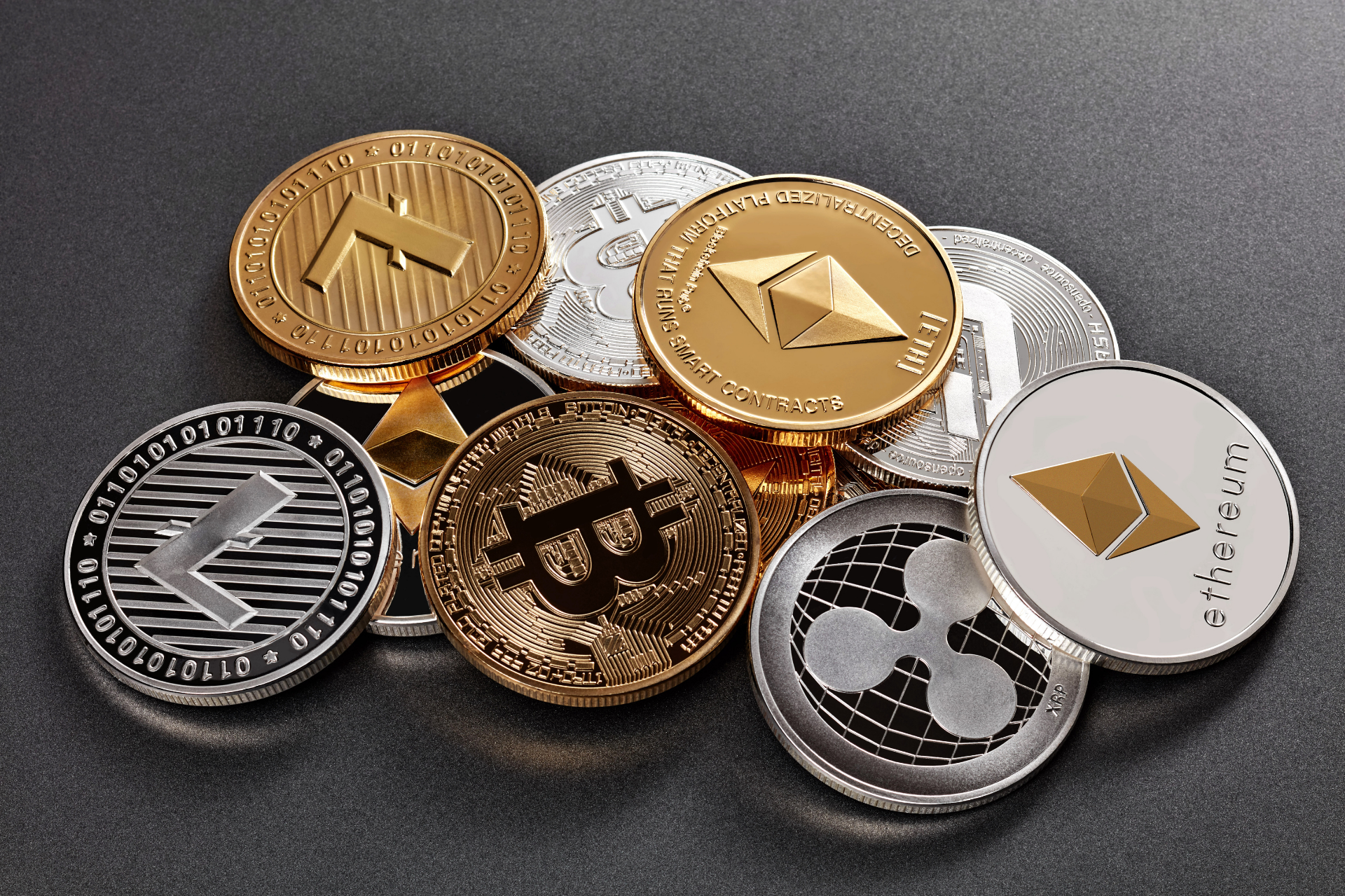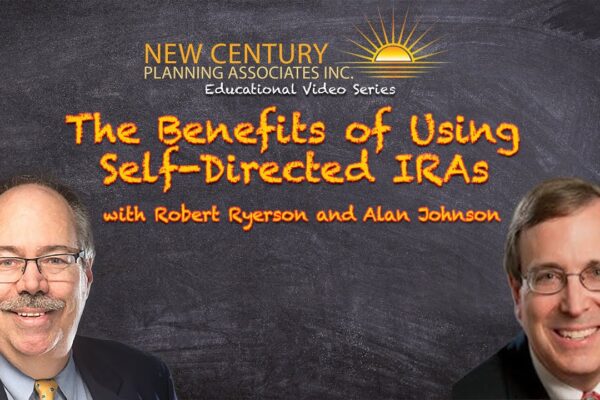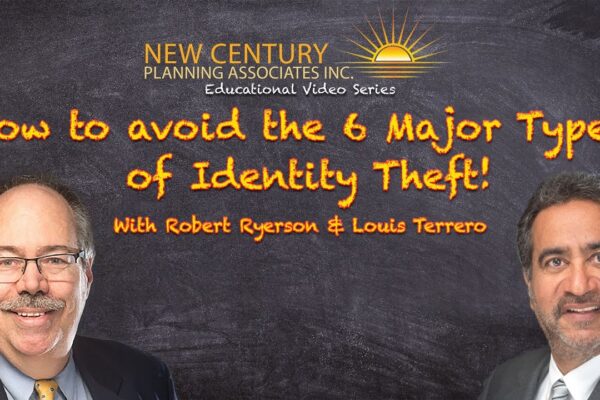Getting Started with Cryptocurrencies – 7 Big Questions Answered
There’s little doubt that cryptocurrency is one of the hottest topics in the financial sphere today, but this doesn’t necessarily mean that it’s easy to understand. Due to the sophisticated technology that powers it and the incredible speed with which it has evolved, cryptocurrency can be a confusing subject even for people with a good deal of financial knowledge, let alone for the average investor wondering about the best way to save for retirement.
To help demystify some of the current discussion around cryptocurrencies, New Century Planning Associates Inc. has just released a special presentation that aims to introduce the world of cryptocurrency to a general audience. Featuring New Century President Robert M. Ryerson and CUNY Professor Jose J. Cao Alvira, the presentation offers straightforward answers to some of the most common questions beginners have about cryptocurrency, including:
1. What are cryptocurrencies?
Also known as “cryptos” or “digital assets,” cryptocurrencies are digital currencies which take the form of virtual tokens or “coins.” As suggested by the name, the most important feature of a cryptocurrency is the advanced cryptographic protocol which secures the creation and processing of the currency and its associated transactions. It makes counterfeiting or replicating the currency nearly impossible.
2. How does Bitcoin work?
 Although there are thousands of cryptocurrencies in existence today, Bitcoin still leads the field when it comes to market capitalization, user base, and popularity. Widely considered to be the original cryptocurrency, Bitcoin was launched in 2008 after the collapse of Lehman Brothers led to a global financial crisis and a widespread lack of trust in the international banking system.
Although there are thousands of cryptocurrencies in existence today, Bitcoin still leads the field when it comes to market capitalization, user base, and popularity. Widely considered to be the original cryptocurrency, Bitcoin was launched in 2008 after the collapse of Lehman Brothers led to a global financial crisis and a widespread lack of trust in the international banking system.
The basic principle behind Bitcoin is the use of an online protocol to transfer value from one person to another via blockchain technology. Transfers may take place in exchange for goods and services—for example, you might buy something from another person and choose to pay them in Bitcoin—or simply for the purpose of transferring the value, much like a stock market trade.
3. How does mining work?
Mining is another (somewhat confusing) term you’ll often hear in discussions about Bitcoin. An instrumental feature of Bitcoin adoption, mining is, in essence, the practice of validating digital transactions that involve Bitcoin. This work is carried out by miners, or computer programmers, who are spread all over the world.
These miners monitor and confirm each transaction that is entered into the Bitcoin system, thus ensuring the validity and legitimacy of the system. For their efforts, miners are paid in Bitcoin. This provides an incentive to keep the whole system running efficiently and permanently, and it removes the need for a central authority to oversee the system.
 4. How does blockchain work?
4. How does blockchain work?
Blockchain technology is the driving force behind Bitcoin and virtually every other type of cryptocurrency. A blockchain is a trail of verified digital transactions, or “blocks,” that have been strung together. This happens when a transaction is verified by a miner, as described above: the verified transaction is then attached to other, previously verified blocks, producing a chain that gives blockchain its name.
You can think of blockchain as a kind of virtual accounting ledger in which every transaction is publicly viewable, and that is distributed, or stored, across a vast network of highly-secured computer servers. The transactions are stored in chronological order, and they are irreversible, which means that it’s impossible to eliminate evidence of historical transactions.
5. How are cryptocurrencies purchased?
If you’re interested in purchasing cryptocurrencies, the most common place to start is a cryptocurrency trading exchange. Coinbase, Kraken, Gemini, and Binance are some of the platforms where the more popular cryptocurrencies, including Bitcoin, can be purchased. To hold your new digital assets, you’ll need a special app known as a “wallet.”
Wallets can be either “hot” (that is, connected to the internet) or “cold” (this is an external storage device with no internet connectivity). Because they are not connected to the internet, cold wallets offer increased security, but are less convenient to access; hot wallets, on the other hand, may be more vulnerable to security breaches but offer easy access to your assets.
 6. What other cryptocurrencies are worth investigating?
6. What other cryptocurrencies are worth investigating?
While Bitcoin remains the cryptocurrency of choice for most investors, many other cryptocurrencies are worth exploring. One digital asset that has risen significantly in popularity (and value) over the last year is the cryptocurrency known as Theta. First introduced in 2018, Theta is the token of the Theta blockchain, a purpose-built network for decentralized streaming video delivery. It is available on many popular exchanges, including Binance and Kraken.
7. Are cryptocurrencies right for you?
Despite their soaring popularity, cryptocurrencies aren’t always the right choice for every investor. To learn more about what role cryptocurrencies could play in your investment strategy, check out the New Century Planning Associates presentation, which includes a special offer for a free 15-minute consultation with New Century Planning advisors.
Author
Robert Ryerson
Although Robert M. Ryerson completed all the necessary requirements to earn bachelor of arts degrees in both English and economics at Rutgers University, college policy at the time prohibited the issuance of dual degrees. As a result, he graduated from Rutgers with a single bachelor of arts in economics before finding employment as a stockbroker with Shearson Lehman American Express in New York City 1984. Robert M. Ryerson has since established himself as a respected estate administrator and legacy planner. In addition to his economics degree from Rutgers, Mr. Ryerson holds several professional designations including Retirement Income Certified Professional (RICP)®; Certified In Long Term Care (CLTC)®; Certified Financial Fiduciary (CFF)®, and Certified Identity Theft Risk Magenament Specialist (CITRMS)®. He has shared his knowledge on the subject of identity theft as the author of the book What’s The Deal With Identity Theft?: A Plain-English Look at Our Fastest Growing Crime. He has also covered identity theft issues directly for students as the instructor of the adult education course Understanding Identity Theft: Our Fastest Growing Crime.






